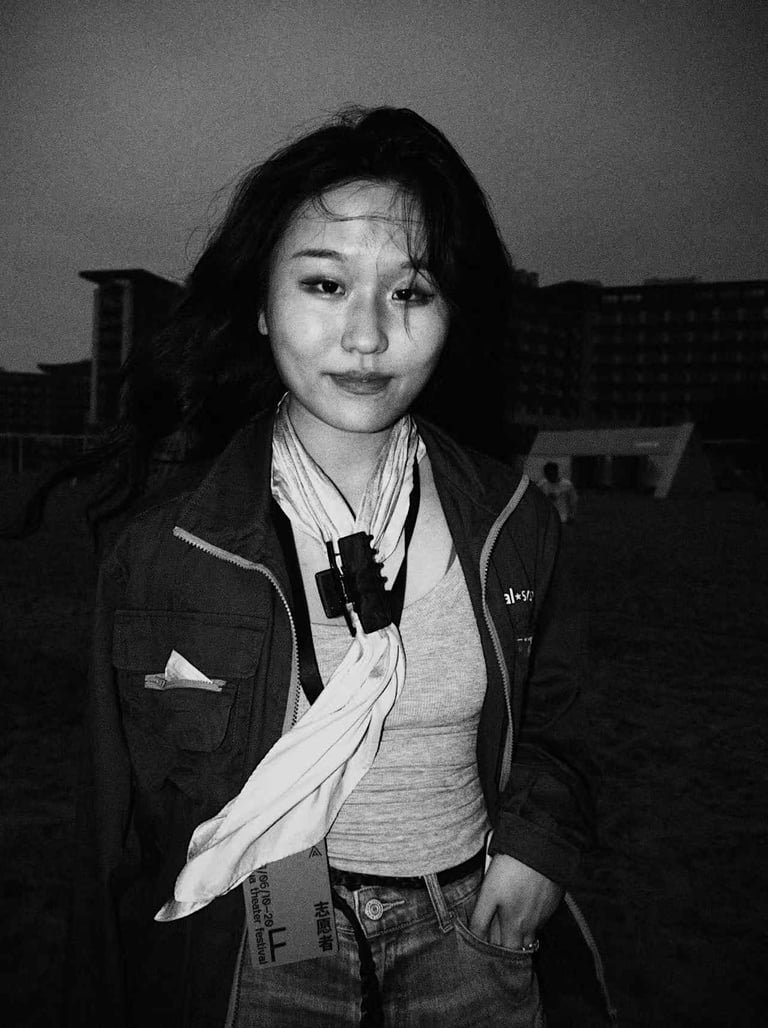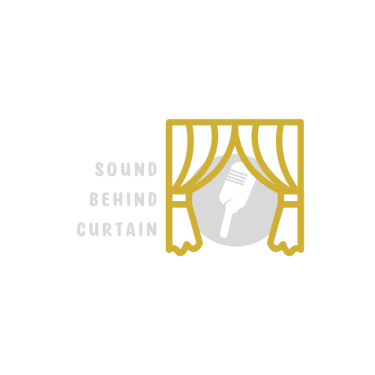Interview with WU Zhiwei: Theatre is what I want most—there's no other option
INTERVIEWSFEATURED
T Wu
6/25/20255 min read


Q: Can you briefly introduce yourself?
I’m Wu Zhiwei. I’m a young director and actor, and I also write plays. I’m currently studying at the Royal Central School of Speech and Drama in London.
Q: How did you first get into theatre?
It started in high school. A friend of mine—who later became my college classmate—founded a drama club in our first year (Grade 10) and staged Cats. I liked singing and dancing too, so I thought I’d give it a try. I performed in it, helped with some choreography, and did a bit of backstage work.
Later I joined an English-language theatre competition in Shanghai and won a prize. That was when I realized this might be something I want to do. But back then, I didn’t plan to study theatre from the start—I was applying to history programs.
Q: What made you eventually turn to theatre?
I’ve always been interested in the humanities. And I noticed that many British actors start off studying liberal arts, then go on to schools like LAMDA or Central to train in acting. So, I ended up at Sarah Lawrence College in the U.S.—a liberal arts school where I could major in theatre and take classes in philosophy, history, and more.
My years in New York were a kind of turning point. I was exposed to many kinds of theatre practices and got a glimpse into the real workings of the industry. That’s when I decided to pursue this professionally.
Q: You mentioned always having interest in theatre, but not the courage to commit to it early on?
Yes. I was really drawn to it in high school, but in China, if you’re not going through the formal art school track, people tend to assume you’re not doing well academically. I didn’t want that kind of judgment, so I took the standard academic route. But theatre was always on my mind.
When I got to the U.S., I told myself: if I can make a living from this one day, I’ll keep doing it. If I can’t, then I’ll move on. I worked part-time, created my own projects, and waited for the right opportunities.
Q: In your view, what does it mean to be a “professional theatre-maker”?
If you're not going into teaching and want to make it creatively, it's either about getting your work seen—or making sure you are. You often have to create your own opportunities. There’s a lot of waiting, a lot of loneliness, and a lot of uncertainty.
Q: What helps you stay in it? Is it passion?
I don’t really like to talk about “passion” like that. It’s more that I don’t have anything else I’d rather be doing. Theatre, for me, is like eating or breathing—it just is. Not out of burning desire, but because this is just what I chose to do.
Q: Now that you’re in London—have you faced any discrimination as an Asian artist?
It’s a bit early for me to say, since I’m still a student and not fully in the industry yet. But there are definitely structural inequalities. I’m just choosing not to focus on that for now. Not because I’m avoiding it, but because I simply don’t have the emotional bandwidth to deal with it at this point.
Instead, I focus on solving problems. I do what I can. If things get emotionally heavy, I choose to ignore it. It’s not the perfect solution, but it’s the most practical one for me right now.
Q: Have your identity and background influenced your creative work?
Absolutely. For instance, the piece I’m working on now was originally written in Chinese. But since I wanted to perform it here in London, I rewrote it in English. That raises a lot of structural questions: how do Chinese-speaking characters speak English in a believable way? Should I move the setting to London? Do I need to adjust the character arcs? These are all creative decisions I have to weigh.
I could choose to ignore these questions, but as a creator, I naturally think about what I’m communicating—not just whether the audience “understands.”
Q: Do you hope foreign audiences understand your culture?
Honestly? In daily life, I don’t really care whether they understand or not. I’m not trying to be a “cultural ambassador,” and I don’t enjoy superficial, performative conversations. If we’re actually friends, we can go deep. But if it’s just surface-level cultural curiosity, I’d rather not engage.
In creative work though, it’s different. I do take cultural context seriously, because my work is public-facing. That’s when I think carefully about what each expression really conveys.
Q: What’s been the biggest challenge in your creative process?
There are constant small challenges—logistics, decisions, time. But what I care most about is how to create in an environment where power is balanced, where people feel safe and motivated.
I used to act too, but I didn’t enjoy being “controlled”. So I stopped. Now as a director, I think about how to make actors feel “guided” rather than “oppressed”—and even enjoy the process. I want creativity to flow in collaboration, not be suppressed by hierarchy.
Q: That sounds like a kind of creative philosophy.
Yes, it is. It’s not based on one particular experience—it’s about how I work. I really dislike the feeling of power imbalance, whether in a theatre production or in a workplace. Even when I’m the one in charge, I want to soften that dynamic and make things more comfortable for everyone.
But that also demands something of me: I have to push myself to be more patient, more curious about people’s emotional complexities. I believe that the way you work is related with your personality. I personally tend to suppress my own emotions for the sake of efficiency and survival. But theatre work doesn’t allow that—you have to engage emotionally. So I’m always adjusting myself.
Q: Tell us about the play you’re working on. How would you describe it?
It’s a one-woman show—a story about a woman searching for stability amidst chaos. It’s about surviving after everything has collapsed.
Q: Why did you create this play?
Just because I want to remember how to write. I didn’t come from a writing background and didn’t have many early opportunities. Directing, to me, has always felt more like a craft—something rooted in secondary creation, in interpreting and shaping someone else’s ideas. So I set this goal for myself: to keep creating something each year, to stay in touch with the rhythm of making.
I used to lean more toward experimental work, but these days I’m also thinking about accessibility—how to connect more directly with an audience. Still, I try to preserve that original impulse: the feeling of building a world from the ground up.
Q: What does writing mean to you?
At first, I wrote because I had something to say—because there were emotions I needed to express. But over time, I started to wonder: Is this considered professional writing? Am I only capable of writing about myself? I hope to write more diverse stories in the future. But I also sometimes doubt—whatever we write, it might always be deeply shaped by our lived experience.
Q: When and where will this play be performed?
The Golden Fly Bomb Venue: The Cockpit, Barons Court Theatre Dates: 21 August – 23 August Time: 5:30/7:00 pm (60 mins) Price: £10 - £15 The Golden Fly Bomb - Camden Fringe
Sound Behind Curtain
A place for all Asian artists.
© 2026 Sound Behind Curtain. All rights reserved.
Your gift keeps the curtain rising for Asian creatives.
About
Contact
